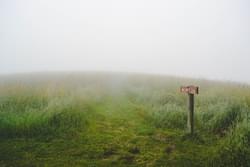




Improving the Sustainability of Trails
The Appalachian Trail has been the focus of the largest and most comprehensive recreation ecology trail science study ever conducted.

Presenters: Jeff Marion, U.S. Geological Survey and Virginia Tech University; Jeremy Wimpey, Applied Trails Research; Johanna Arredondo, Virginia Tech; Fletcher Meadema, Virginia Tech
The Appalachian Trail has been the focus of the largest and most comprehensive recreation ecology trail science study ever conducted. “Best Management Practice” implications applicable to all natural-surfaced trails are discussed. What are the key elements of a sustainably designed trail? What’s the most effective method for draining water from trails? How can trail stewards limit campsite expansion and resource impacts?